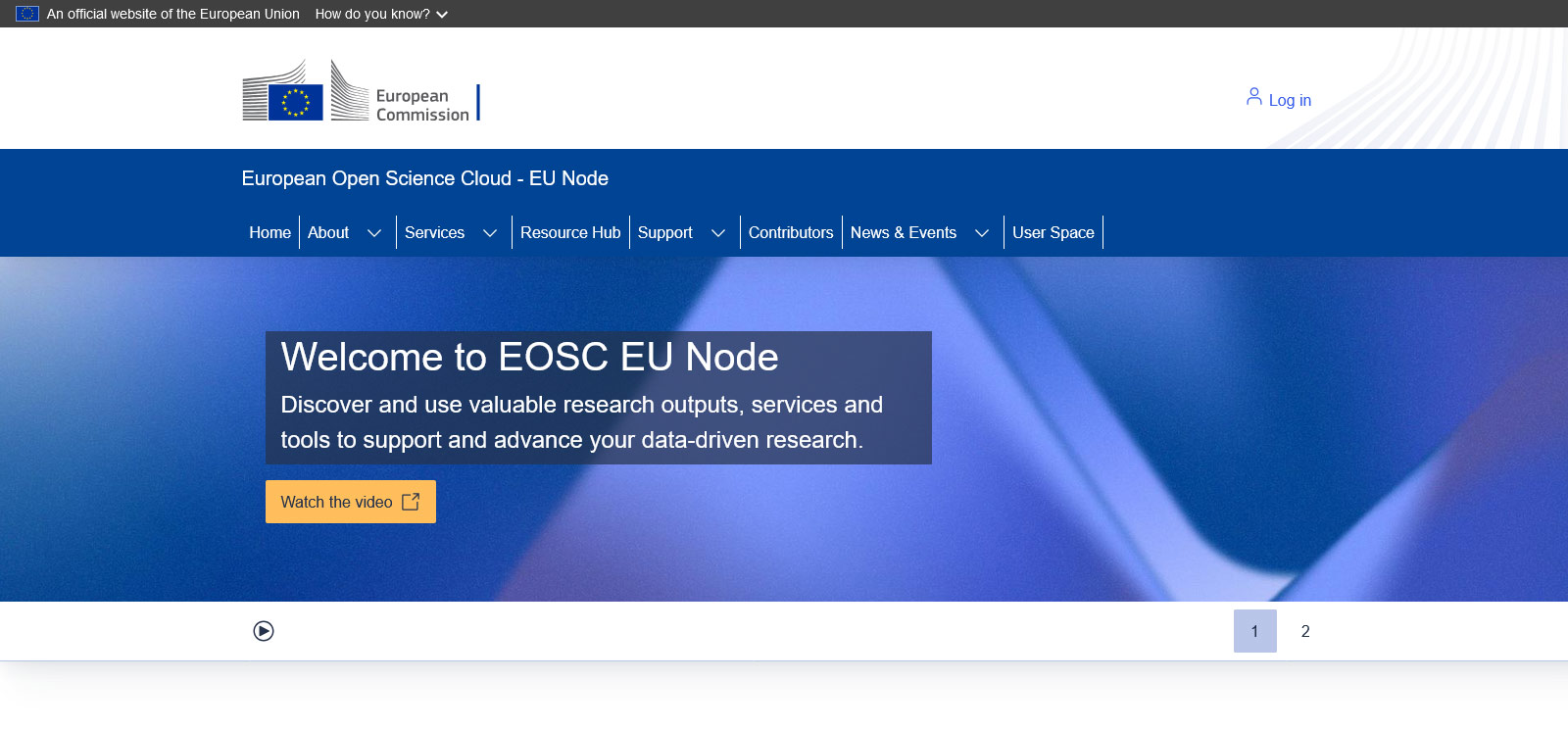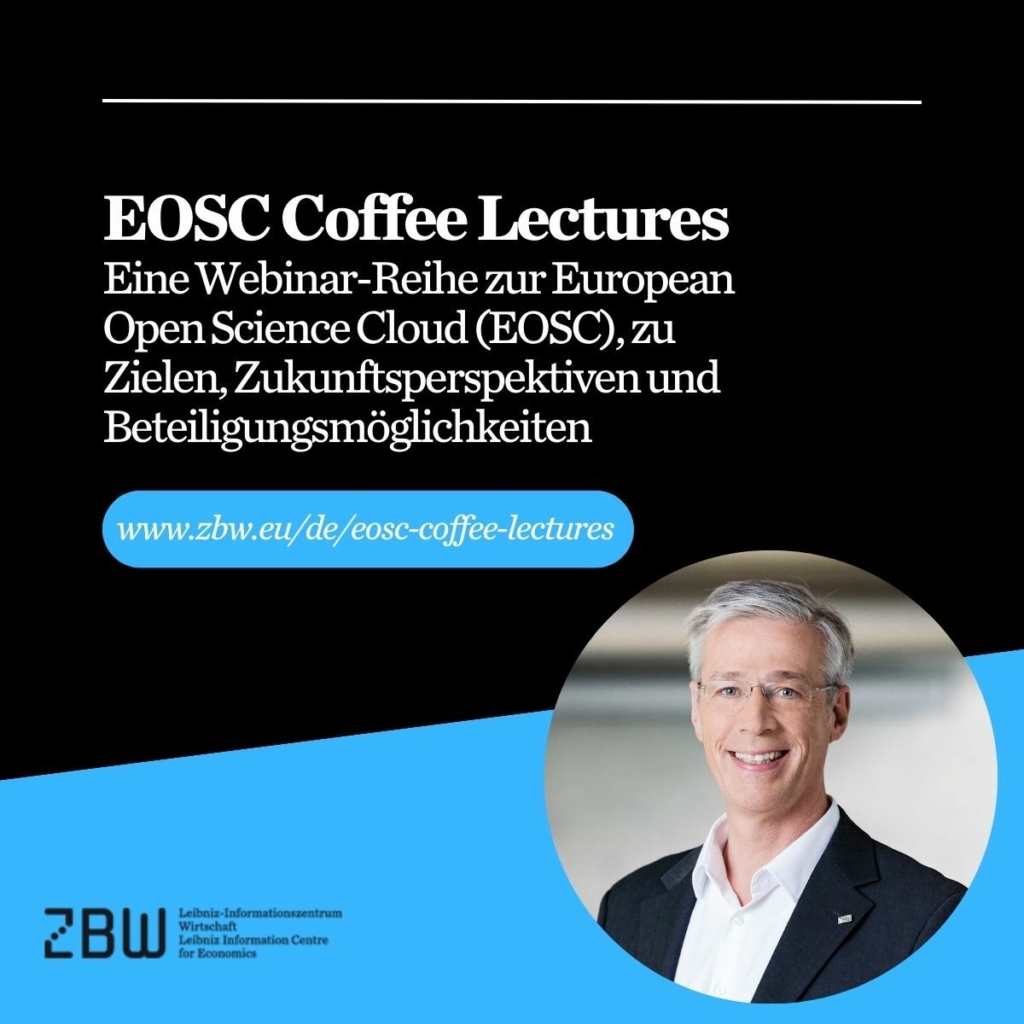Starting signal for European Open Science Cloud
Launch of the EOSC EU Node marks a milestone for Open Science

At the EOSC Symposium in Berlin at the end of October 2024, the first access to the European Open Science Cloud (EOSC) was activated online for all researchers in Europe. The EOSC EU Node promotes data-driven research in Europe by providing valuable services, tools and access to research data and results, the European Commission announced.
Through its involvement in science policy in the EOSC Association, the ZBW has supported the achievement of this important milestone in the European scientific landscape for many years.
ZBW Director Prof Dr Klaus Tochtermann, board member of the EOSC Association, explains: “This information hub opens up new opportunities for researchers to access research data and services across disciplinary boundaries. The EOSC EU Node serves as a nucleus for the future development of further thematic and national EOSC nodes.”
Importance of the EOSC and the role of the ZBW
The European Open Science Cloud (EOSC) is an ambitious project that aims to create a comprehensive digital research data infrastructure for the whole of Europe. It enables researchers to share and utilise scientific data, publications, software and services across national and disciplinary boundaries.
The EOSC EU Node, which now serves as the first reference implementation, is intended to make access to these resources more efficient and standardised. This technical platform will greatly facilitate collaboration between European research organisations and support progress in open science.
The ZBW has played a special role in this for many years: with a seat on the board of the EOSC Association, it plays a key role in the organisation and further development of the EOSC. The re-election of Prof Dr Klaus Tochtermann in 2023 underlines the trust placed in the ZBW by the European scientific community. It also emphasises the importance of the ZBW for the German and European research data infrastructure.
New access point for data-driven research in Europe
The EOSC EU Node is a platform to support multidisciplinary and multinational research. It aims to promote the use of FAIR Data (Findable, Accessible, Interoperable, Reusable) and complementary services in Europe and beyond. Researchers will find user-friendly tools, computing and storage infrastructure and comprehensive support to plan, conduct, disseminate and evaluate their research processes and results individually and collaboratively across the EOSC ecosystem.
EOSC EU Node strengthens European research data infrastructure
The introduction of the productive version of the EOSC EU Node marks a significant step towards the European research data community. This means that basic EOSC functionalities can now be used, which is the prerequisite for other national, regional or thematic infrastructures to be able to dock on. The goal of a productively usable EOSC Federation is thus within reach. Europe’s research institutions, information infrastructure facilities and scientists are invited to participate in the further development and use the services of the EOSC EU Node, which will now be fully available from October 2024.
Event information: EOSC Coffee Lectures

The ZBW regularly organises the EOSC Coffee Lectures webinar series, which offers insights into the European Open Science Cloud (EOSC). In the free Coffee Lectures, interested parties can learn more about the goals, current status and future prospects of the EOSC. Opportunities to participate in EOSC activities will also be presented. The lectures are aimed at scientists and experts who work with research data or are involved in the development and maintenance of research infrastructures.
The webinars will be held in German by Prof Dr Klaus Tochtermann, member of the Board of Directors of the EOSC Association and NFDI Senate member.
The recordings of the Coffee Lectures are available online and enable interested parties to find out about the content flexibly.
*The text was written on 29 October 2024.
This text was translated on 20 January 2025 using DeeplPro.
